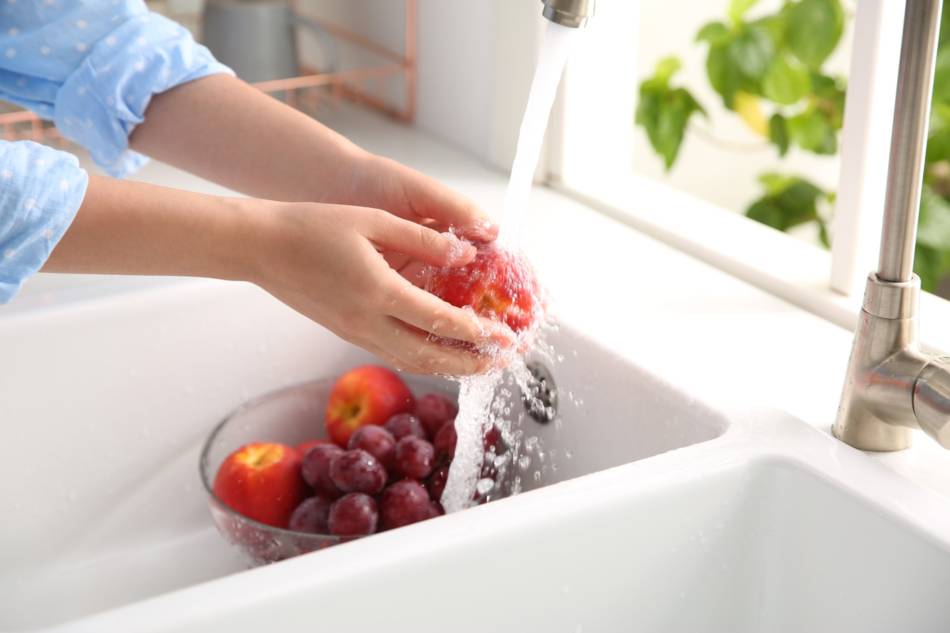Our Members Asked:
Are fruit and vegetable “washes” or devices more effective than water for cleaning produce and removing pesticides? Are they safe?

Answer:
Fruits, vegetables, and leafy greens can harbor pathogenic bacteria such as Salmonella, E. coli, and L. monocytogenes (i.e. Listeria) that can cause food poisoning, as well as have pesticide residue on their surfaces.
Fruits and veggie "washes" and cleaning devices are often promoted by manufacturers as a safe and effective way to remove bacteria and pesticides, and in some cases, are touted as being more effective than rinsing with water alone although in many cases studies to back these claims are not available on the companies' websites and are not supporting by laboratory research.
Sign in as a member for tips for cleaning fruits, vegetables, and mushrooms and to learn:
- How produce washes (including vinegar, baking soda and hydrogen peroxide) compare to rinsing with water to removal of pesticides and bacteria.
- If use of bleach, sanitizers, and disinfectants is appropriate.
- Which produce is most likely to be contaminated with pesticides (including herbicides, insecticides, and fungicides), even after rinsing.
- Whether ethylene absorbers such as Bluapple Classic Produce Saver or OXO Good Grips GreenSaver Standing Crisper Drawer Insert extend the shelf life of fruits and vegetables.
- If you need to remove Edipeel coating applied to some fruits and vegetables.
- If produce-washing devices remove bacteria and pesticides from fruits and vegetables better than rinsing with tap water. Devices discussed are those that use electrolysis (such as Garrnish or AquaPure), spray bottles that generate ozone water (such as O3waterworks Sanitizing Spray Bottle and the Ozone Clean Multipurpose Cleaner by Homedics), and a href="/newsubscriber.asp?FromSource=CLANSWERS&FromSourceId=fruit-and-veggie-washes">ultrasonic cleaners (such as Sonic Soak's Multi-Purpose Ultrasonic Cleaning Tool or MIRA Safety's DTX-1 Food Detoxifier).
Join today to unlock all member benefits including full access to all CL Answers and over 1,400 reviews.
Join NowAlready a member? Sign In Here.
Join now at www.consumerlab.com/join/






Submit your comment
This feature is restricted to active members.
Join now to add comments and get all member benefits, including over 1,400 reviews.
Join NowAlready a member? Sign in here.